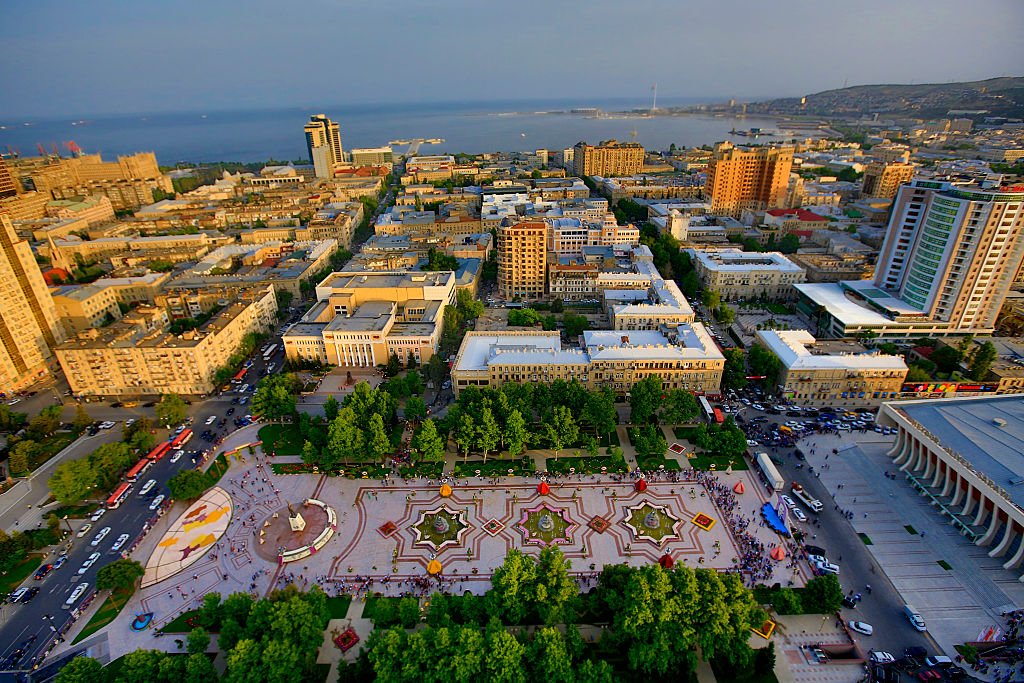
Freedom of Association
Pro-government CSOs protest irregularities in grant distribution
At the end of May 2023, the Azerbaijani editorial board of Radio Free Europe published an article on the distribution of financial resources for civil society organisations (CSOs) under a state funding programme. According to the quoted source, the distribution of funds led to confusion and dissatisfaction among applicants, as the amounts allocated ended up being much smaller than those requested, and many proposals were rejected.
Following the publication of the results on 26th May, several representatives of Azerbaijani NGOs initiated a protest demanding transparency and fairness from the authorities administering the grant programme. The protest took place in front of the presidential building, where they argued that the Agency for State Support to NGOs had not taken into account certain important elements, including the involvement of disaffected NGOs in the protests in Nagorno-Karabakh, particularly in relation to the Lachin corridor, and their other activities in support of President Aliyev and the government. The demonstrators argued that their activities cost much more than the authorities value their involvement. Some of those present said their CSOs could no longer afford office rent or other personal expenses and called on the government to expand funding for CSO activities.
Critics argue that GONGOs (government-organised non-governmental organisations) in the country regularly receive public funds to actively promote the government agenda. Moreover, foreign donors have withdrawn from the country since 2013 due to the difficult situation. Independent critics claim that the government has not only built a network of GONGOs that are closely linked to it but has also neutralised independent NGOs. Some even claim that foreign embassies and international organisations currently operating in the country are also supporting GONGO activities. In 2014, a group of NGOs alleged that the US Agency for International Development (USAID) awarded a USD 1.5 million grant to government-controlled organisations without disclosing their names or the tender results. USAID claimed that the selection process was transparent and competitive.
Freedom of Peaceful Assembly
Seven arrested, four sentenced for protesting against transgender women’s detention
On 22 May, footage of a violent confrontation between several trans women and police in Baku was posted on social media. According to OC-Media, the footage showed a group of trans women clashing with police before being forcibly detained. Two of the women were arrested after the confrontation.
The next morning, a group of activists gathered outside a police station to protest the arrest of the women. According to a spokesperson for the Azerbaijani Interior Ministry, seven people were arrested during the protest. On 24 May 2023, two activists were sentenced to 15 days in prison, two others were fined for hooliganism and illegal possession of drugs, while three were released shortly after their arrest. Two activists quoted by OC-Media stated that they were subjected to homophobic slurs and degrading treatment by the arresting officers, who handcuffed them and forced them to submit to a drug test.
Blockade of Lachin corridor in Karabakh ends after four months
In April 2023, Azerbaijani “environmental activists” who had been protesting against the exploitation of mineral resources in Nagorno-Karabakh since December 2022 ended their blockade of the Lachin corridor. As CIVICUS Monitor previously reported, the blockade of the only road connecting Armenia and Nagorno-Karabakh prevented the free supply of food, medicine and fuel to ethnic Armenians remaining in the region and led to one of the worst humanitarian crises in the disputed territory since it came under the control of Azerbaijan and Russian peacekeepers.
Despite claims that the protests were organised by environmental activists concerned about “illegal” mining in the region, they were widely seen as arranged by the Azerbaijani authorities, with media reporting that the group consisted mainly of officials and disguised military personnel, as well as representatives of state-controlled civil society organisations. In a series of identical articles published by pro-government media on 28th April, the protesters announced that they had decided to stop their action after an Azerbaijani border crossing was established on the corridor. The border crossing was established at the Hakari Bridge, which is adjacent to the Russian peacekeepers' deployment, leading to further criticism of the peacekeepers’ failure to respond adequately to the crisis and protect Armenian interests.
Freedom of Expression
Azerbaijan ranked 151st in the World Press Freedom Index
In the latest World Press Freedom Index report, Azerbaijan is ranked 151st out of 180 countries, a slight improvement from the previous year. According to the head of Reporters Without Borders' Eastern Europe and Central Asia office, Jeanne Cavelier, quoted by Jam News, this is due to global trends and not an improvement in the working environment for Azerbaijani media. Jeanne Cavelier explained that the global situation has deteriorated while the situation in Azerbaijan has remained relatively stable, resulting in Azerbaijan moving up three places in the rankings.
The experts who helped compile the current index believe that there are no positive trends in Azerbaijan with regard to press freedom, even though measures have been taken to influence government authorities in this direction. Journalism is still a dangerous profession; this situation has not changed in Azerbaijan and the press is under total control. Journalists are subjected to violence, psychological and physical pressure, torture, threats and imprisonment. Another crucial element is that there is no sign that the laws regulating media activities will be changed, so conditions are unlikely to improve. The last amendments to the media law in 2022 have only further legitimised censorship.